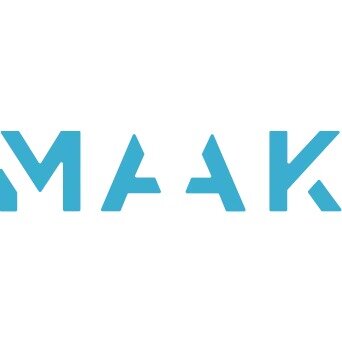Best Class Action Lawyers in Amsterdam
Share your needs with us, get contacted by law firms.
Free. Takes 2 min.
List of the best lawyers in Amsterdam, Netherlands
About Class Action Law in Amsterdam, Netherlands
Class action lawsuits, known in Dutch law as "collective actions," allow multiple claimants to band together to sue a defendant as a group. Primarily found in consumer protection, securities, and product liability cases, this legal mechanism provides a means to collectively seek redress when individual claims might be too small to pursue separately. Amsterdam, as part of the Netherlands, follows a civil law system where class actions are increasingly recognized, especially following recent legislative amendments which aim to streamline and enforce collective actions more effectively.
Why You May Need a Lawyer
Seeking a lawyer experienced in class action cases can be crucial if you're involved in a collective lawsuit. Common situations include: when numerous parties suffer similar harm from a corporation or product, when consumer rights have been violated, when environmental damage affects a community, or when a widespread data breach leads to individual losses. A lawyer can help navigate the complexities of Dutch collective action procedures and increase the chances of a favorable outcome.
Local Laws Overview
In Amsterdam, and the Netherlands at large, key pieces of legislation include the "Wet Collective Afwikkeling Massaschade" (WAMCA), which was enacted to streamline the process of managing collective claims. This law allows settlement of mass claims in cases where class actions are deemed as preferable over individual lawsuits. The WAMCA aims to enhance the efficiency and effectiveness of collective redress mechanisms, enabling entities to centralize their claims into a single court procedure, thereby reducing duplicative litigation and conflicting judgments.
Frequently Asked Questions
What is the WAMCA and how does it affect class actions?
The WAMCA stands for the "Wet Collectieve Afwikkeling Massaschade," a Dutch law that provides a framework for collective actions. It allows claims to be represented efficiently by a representative entity, which simplifies the process of achieving settlements in mass harm cases.
Who can initiate a class action in Amsterdam?
Class actions in Amsterdam can be initiated by foundations or associations that aim to protect similar interests of the aggrieved parties. These entities must meet certain representativeness criteria set by Dutch law.
What type of cases can be taken as a class action?
Common class action cases involve consumer rights violations, securities fraud, environmental harm, product liability, and data privacy breaches.
How does one become a member of a class action?
Individuals typically become members of a class action by formally registering with the representative entity or being affected by the actions that the class action seeks to address. Notice to potential class members is often part of the legal process.
What are the benefits of a class action in the Netherlands?
Class actions provide a platform for individuals to combine their claims, share legal costs, and potentially achieve a more efficient resolution through collective litigation.
Is a settlement binding on all members of the class?
Settlements approved by the court are generally binding on all members of the class unless they opt out, subject to specific terms set forth in the settlement agreement.
What is the role of the Amsterdam Court in class actions?
The Amsterdam Court plays a pivotal role in class actions, scrutinizing and approving collective settlements, ensuring fair representation, and managing the overall litigation process.
How long does a class action lawsuit take?
The duration of a class action lawsuit can vary significantly depending on complexity, the number of parties involved, and the willingness of parties to negotiate a settlement. It typically takes several years.
Can foreign entities be part of a class action in Amsterdam?
Yes, foreign entities can be involved in class actions if the case involves Dutch-based elements or laws, or if the harm occurred within the Netherlands.
What costs are involved in participating in a class action?
Costs can vary but are often shared among class members. Many lawyers work on a contingency basis, meaning they get paid from the settlement amount, reducing upfront costs for plaintiffs.
Additional Resources
For individuals seeking more information or assistance with class actions, consider reaching out to the Dutch Consumer Association (Consumentenbond), the Foundation for Consumer Complaints Boards (Geschillencommissie), or the European Consumer Centre Netherlands (ECC). These organizations can provide guidance and potentially represent collective interests in mass harm cases.
Next Steps
If you believe you are part of a situation that warrants a class action, it is essential to gather all relevant information and documents pertaining to your case. Contact a lawyer specializing in class actions to discuss your options. They can advise on whether a collective lawsuit is feasible and help proceed with necessary legal actions. It’s also advisable to stay informed about any ongoing or potential class action lawsuits that may be relevant to your situation and consider connecting with other affected parties to explore collective legal avenues.
Lawzana helps you find the best lawyers and law firms in Amsterdam through a curated and pre-screened list of qualified legal professionals. Our platform offers rankings and detailed profiles of attorneys and law firms, allowing you to compare based on practice areas, including Class Action, experience, and client feedback.
Each profile includes a description of the firm's areas of practice, client reviews, team members and partners, year of establishment, spoken languages, office locations, contact information, social media presence, and any published articles or resources. Most firms on our platform speak English and are experienced in both local and international legal matters.
Get a quote from top-rated law firms in Amsterdam, Netherlands — quickly, securely, and without unnecessary hassle.
Disclaimer:
The information provided on this page is for general informational purposes only and does not constitute legal advice. While we strive to ensure the accuracy and relevance of the content, legal information may change over time, and interpretations of the law can vary. You should always consult with a qualified legal professional for advice specific to your situation.
We disclaim all liability for actions taken or not taken based on the content of this page. If you believe any information is incorrect or outdated, please contact us, and we will review and update it where appropriate.










